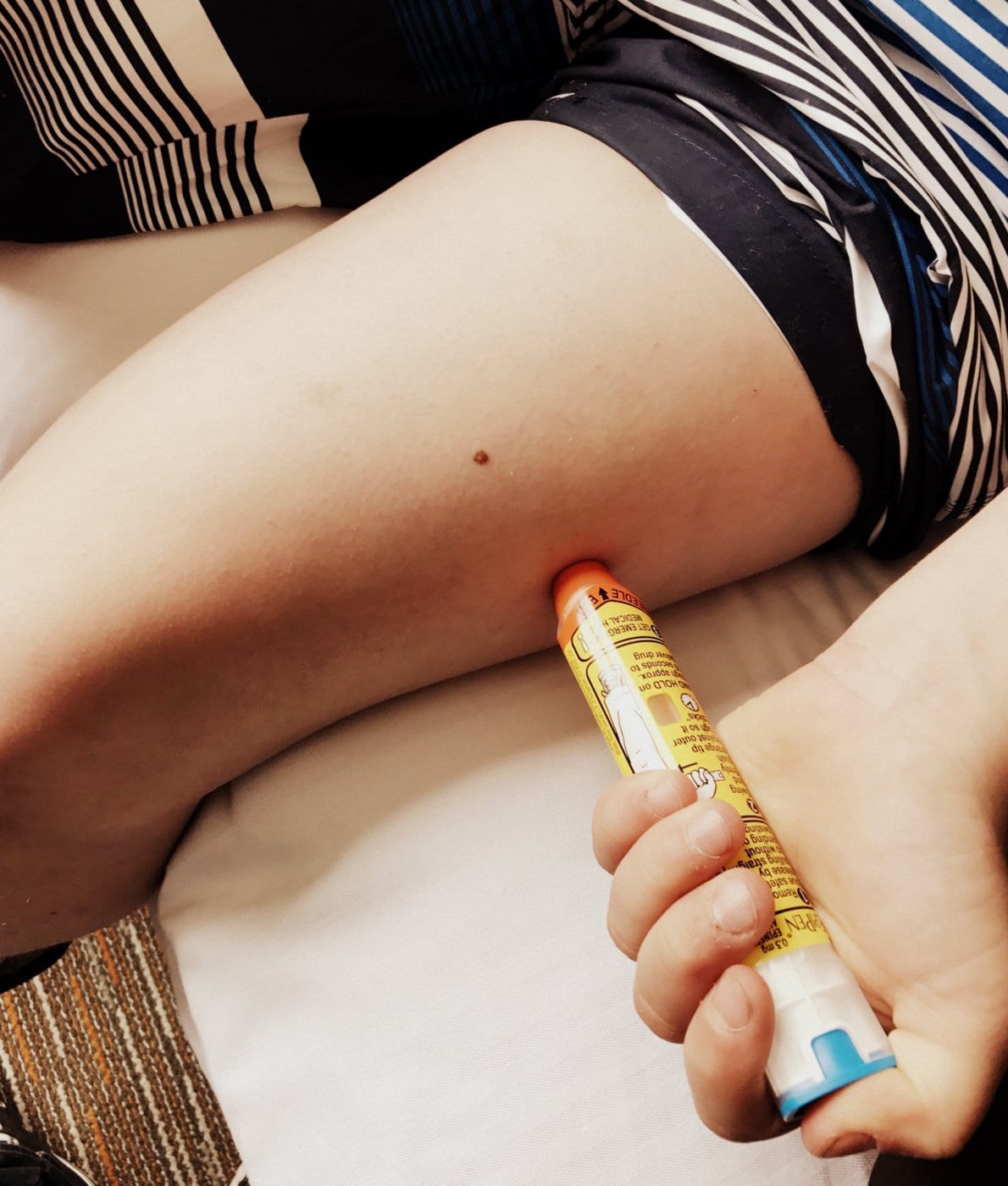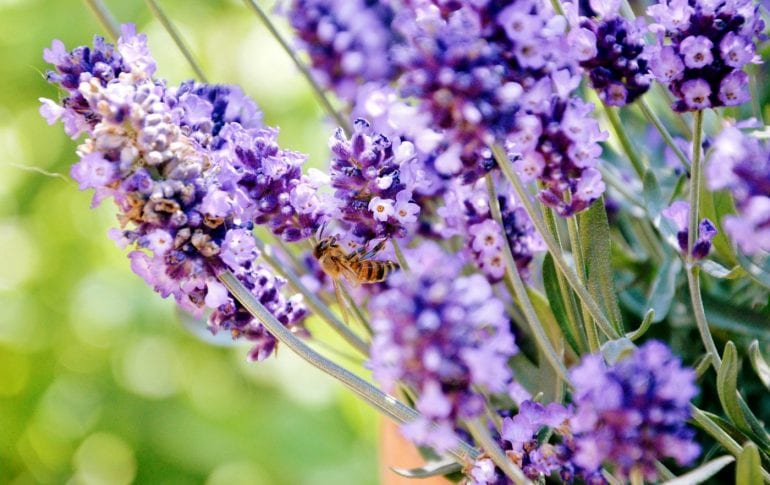Bugs do more than just bug people — insect stings cause somewhere between 40 and 100 deaths nationwide each year.
“Fortunately, most people experience only mild reactions to stings, but a small minority, about 4 percent, are susceptible to severe systemic allergic reactions, which can be life-threatening,” says allergy expert Wesley Burks, MD, of the University of North Carolina.
Bees, wasps, hornets & fire ants the worst
Hymenoptera insects — bees, wasps, hornets and fire ants — are the most important cause of such allergic reactions, due to particular protein enzymes found in the venom. Treatment advice varies based on the severity of the reaction.
Burks says that certain people with a history of systemic allergic reactions to insect stings are likely to benefit from immunotherapy to prevent life-threatening anaphylaxis, and they should, at the very least, carry an epinephrine auto-injector.
Minor symptoms can usually be treated at home
Local reactions, characterized by pain, itching and swelling contiguous with the sting site, do not typically require medical attention, unless the sting is on or near the face and the related swelling compromises the breathing.
Oral corticosteroids may be warranted in the case of a large local reaction. Otherwise, at-home care with a cold compress and oral antihistamine should suffice.
Full-body symptoms need immediate care
Systemic allergic reactions, however, require immediate emergency medical attention.
Such reactions manifest in “full body” symptoms which can affect one or multiple body systems, including the skin (flushing, hives, non-localized swelling, including the face, lips, tongue or throat); respiratory system (wheezing, shortness of breath); the heart (rapid heartbeat, dizziness or fainting caused by a drop in blood pressure); and gastrointestinal tract (nausea, vomiting).

Managing systemic reactions
Although symptoms of systemic reactions can be delayed for several hours or (more rarely) recur within eight hours of the initial episode, they usually onset within minutes or faster in the most severe cases.
“We are particularly concerned about people who have had a systemic reaction in the past,” Burks added. “Those sensitized to certain insect venoms are at high risk of developing an acute systemic allergic reaction, what we call anaphylaxis, from a sting. That can be deadly.”
For a person who experiences a systemic allergic reaction to an insect sting, Burks recommends a prescription for at least one epinephrine auto-injector, to be administered immediately at the first sign of systemic reaction after a sting and followed by an emergency medical evaluation.
He also recommends referral to an allergist-immunologist for skin testing within six weeks of the initial systemic reaction. A positive skin test is an indicator for immunotherapy, which aims to reduce a patient’s allergic response through repeated exposure to the venom by injection under close medical supervision.
“Based on controlled trials, we can say venom immunotherapy offers significant protection,” says Burks. “Upwards of 90 percent of patients who undergo such therapy for three to five years do not experience systemic reactions to future stings.”
7 smart sting avoidance strategies
Burks said the literature review suggests that as many as half of the more than 40 lives lost to insect stings each year could be saved by following the treatment guidelines — but cautions that current science has its limitations.
“We have no method for testing patients for insect-sting allergies before a sting has occurred, and about half of insect-sting deaths occur with a first sting,” says Burks. “Thankfully, severe reactions are rare, but it doesn’t hurt to take precautions to avoid being stung in the first place.”
1. Don’t walk barefoot when you’re outside.
2. When eating outside, avoid drinking from open soda or juice cans, and keep food covered.
3. Remain calm and quiet around stinging insects. Move slowly and don’t swat them.
4. Never disturb an insect nest. Consult an exterminator to eliminate nests near your home.
5. Avoid areas where insects like to be, such as flower beds and trash receptacles.
6. When in wooded areas, keep skin covered by wearing long-sleeved shirts, pants, socks, and closed-toe shoes. (Loose clothing can allow insects to get between the clothes and skin.)
7. Avoid scented body products and brightly-colored and flowered clothing, which can attract insects.








